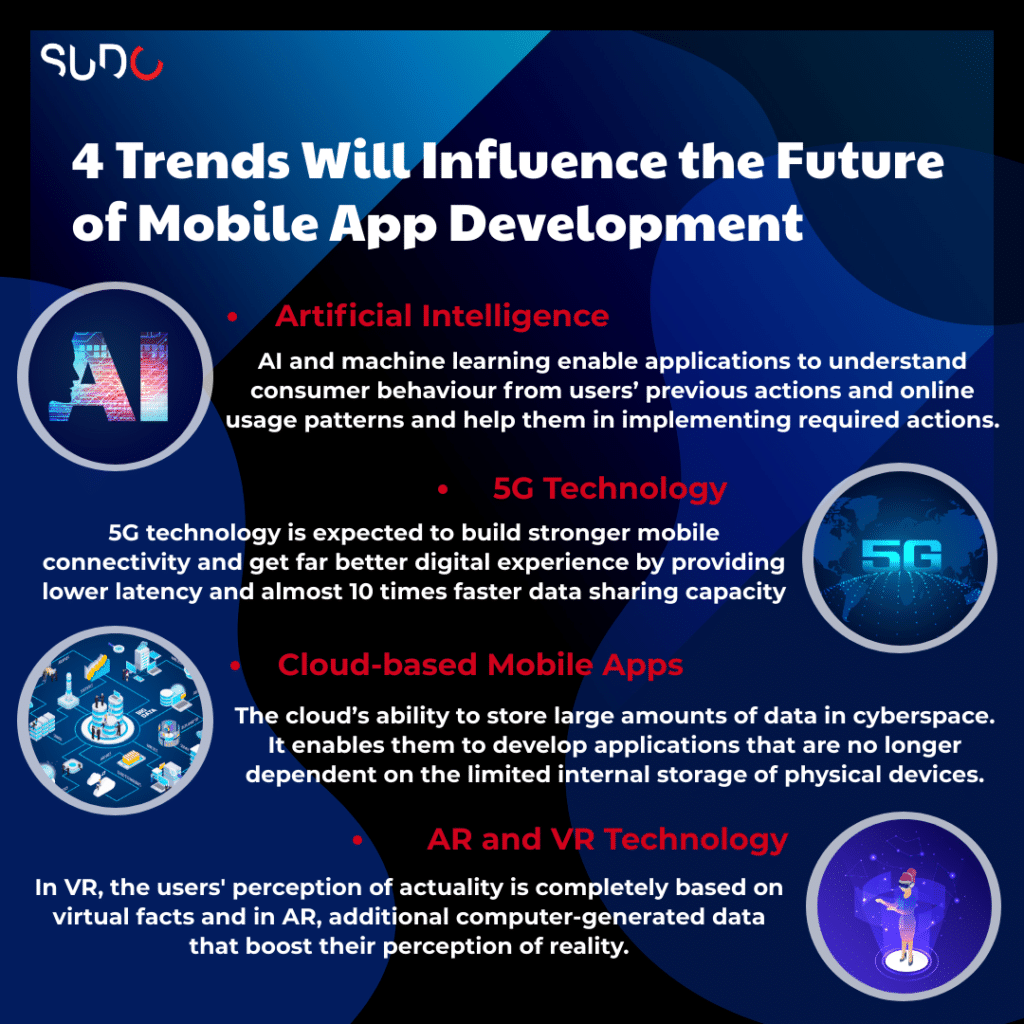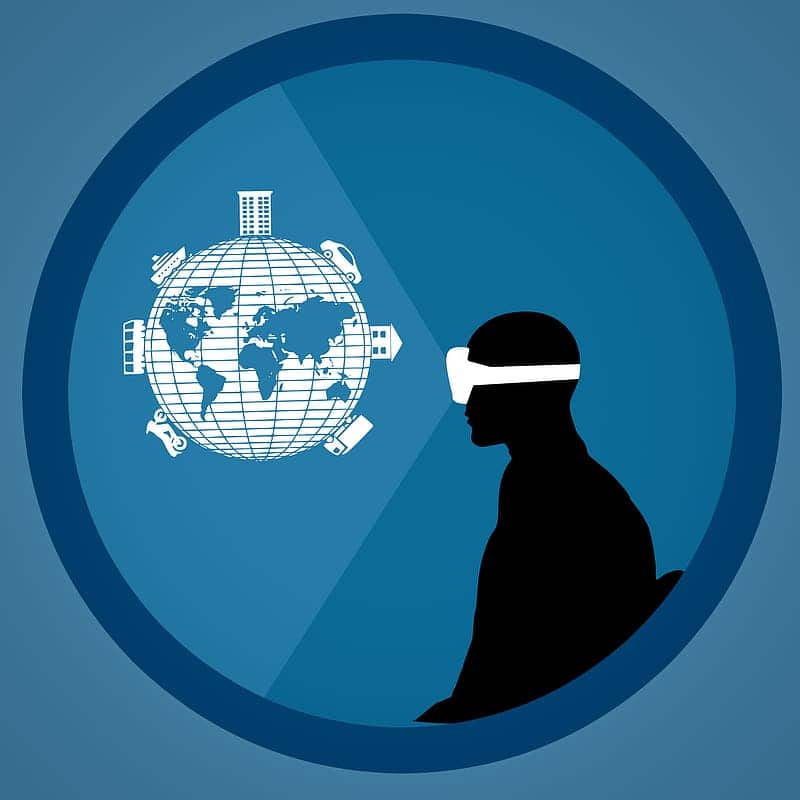Mobile app development is undoubtedly one of the fastest-growing and innovative sectors in the international market today. With over 1 billion smartphones and 179 billion mobile apps downloaded every year, the mobile application market is certainly re-shaping the way many businesses operate currently. Statistics show by 2022 annual mobile app downloads will reach 258 billion, which is a 45% jump from 179 billion downloads in 2017.
The experts believe this number will grow even bigger than we are imagining now. Many studies have predicted, the number of mobile users worldwide will grow to 7 billion by 2021. Therefore, the need for businesses to opt for mobile apps is evident to meet the evolving market demand.
Below you will get to know about some of the trends that will influence the future of mobile application development.

- Artificial Intelligence, Machine Learning, and Personalised App Experience
There is a demand for more personalised app experiences in the market that respond to the individual needs of every user/consumer. Therefore, we will see artificial intelligence (AI) and voice-enabled technologies, taking the lead in the next wave of mobile app development, delivering personalised experiences that will be more interactive, natural and engaging.

AI and machine learning enable applications to understand consumer behaviour from users’ previous actions and online usage patterns and help them in implementing required actions. That is when a user goes on online shopping, it can help find the desired products without you asking them to do so. Likewise, voice-enabled apps also allow similar assistance as technology continues to bring more transformation in the consumer world. Though still in its nascent stage, it is increasingly becoming more efficient and relatable.
- 5G Technology
Introduction of 5G networks will not only change how people use apps, but it will also help in creating data-intensive applications that will facilitate processing larger amounts of data in much lesser time, enabling new markets to open for developers.
5G technology is expected to build stronger mobile connectivity and get far better digital experience by providing lower latency and almost 10 times faster data sharing capacity, in comparison to the existing wireless technology.
- Cloud-based Mobile Apps
The impact of cloud technology can be seen even on the mobile app development world. Developers are using the cloud’s ability to store large amounts of data in cyberspace. It enables them to develop applications that are no longer dependent on the limited internal storage of physical devices.

App data can be stored in the cloud, that can help users access and run applications without having to worry if internal device storage can support them or if they would be able to install them. Cloud helps in enhancing the storage capacity and also increases the performance of the applications. Moreover, it also makes development easier and faster. The popularity of cloud technology is expected to rise in the coming years.
- AR and VR Technology
Augmented and virtual reality is not new to the tech world. It is widely used and integrated into many apps in both the retail and gaming sectors. With AR and VR technologies, developers will have the opportunity to create a more immersive and personalised user experience, leading to more engagement. The technology is expected to be beneficial in the healthcare industry, education and training, entertainment industry and more.

How Mobile Apps Will Influence the Future?
When mobile app technology was first introduced, nobody had prophesied that it will one day transform the entire consumer market and the world will function around it. We cannot deny that mobile apps have become an essential part of our digital world. Today, we have reached a stage from where we can say, it will massively influence the way we do business and an increasing number of businesses would be investing in the development of mobile apps for their business.